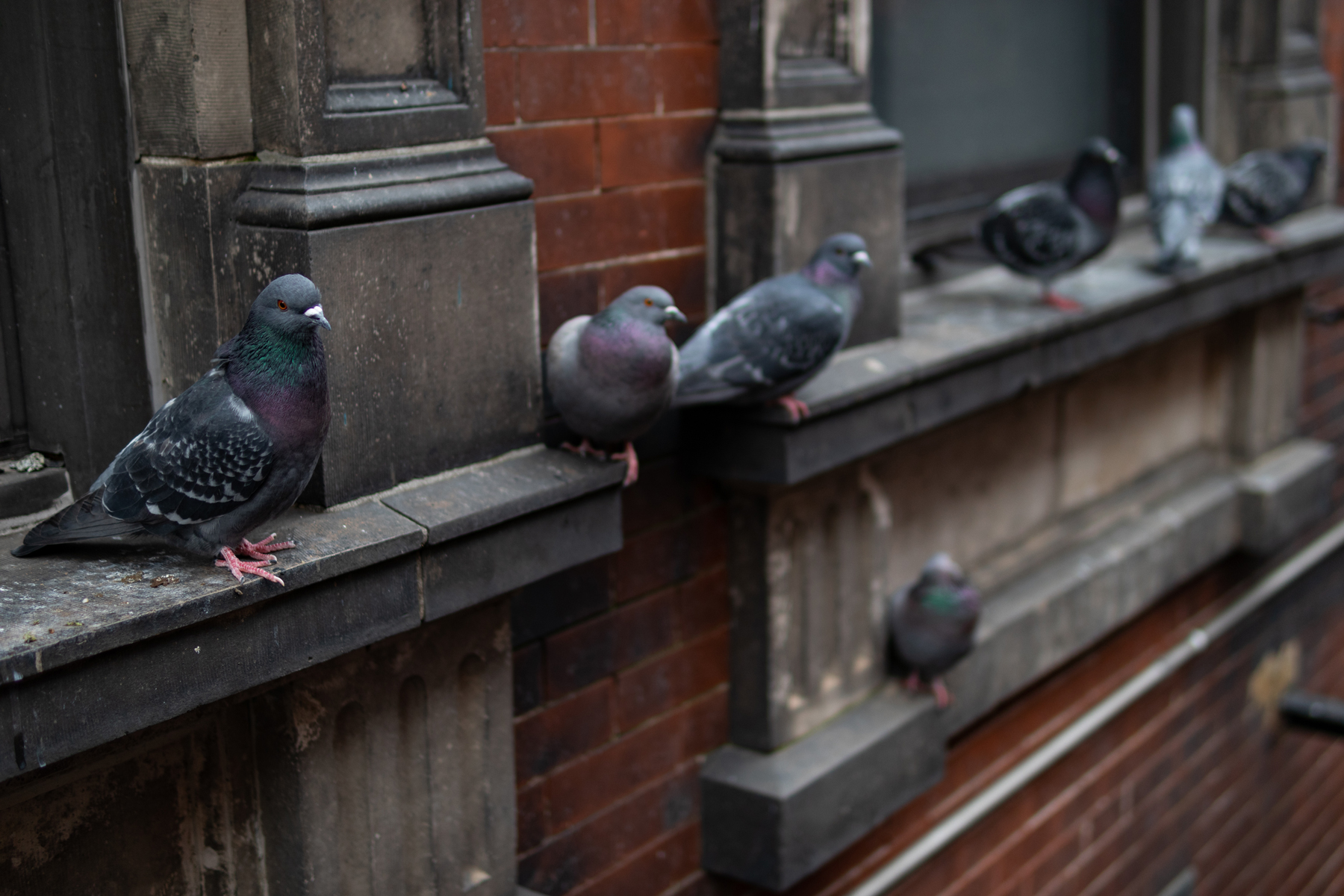
Pigeons on the Pill? Scientists Try to Curb Feral Populations
One of the highlights of my trip to Venice nearly two decades ago was being covered in feral pigeons while sitting in St. Mark’s Square. Now, scientists across the globe are trying to give contraceptives to invasive species, including grey squirrels, wild boars, and pigeons.
In addition to Venice, pigeons are ubiquitous to many large urban areas and residents complain about their droppings, associated uncleanliness, and their flammable nests. Although many cities have tried falconry, poisoning, and trapping, their numbers continue to grow. Now, scientists are looking into contraceptives.
The birth control used in many cities is Nicarbazin, which was originally invented in the 1950s to treat coccidiosis. It also made birds infertile, including chickens, ducks, and Canadian geese. One problem is dosage. If pigeons don’t continually ingest it, their fertility rates go back to normal, which was shown in Barcelona a few years ago. While some populations decreased by 55 percent over a three-year span, other populations stayed the same — most likely due to tourists supplementally feeding them and the pigeons not eating enough contraceptive-laced feed.
Interestingly, pigeon populations are cut in half when people stop feeding them, even without the use of contraceptives. The problem, of course, is that people like to interact with wildlife and take photos in picturesque city squares covered in pigeons — cough, cough. Officials in Canada, Europe, and the U.S. have urged people to stop feeding feral pigeons, but it’s a hard habit to break.
In Limburg, Germany, the majority of residents have voted to cull their 700 wild pigeons but animal activists are threatening legal action. The town has been trying to reduce their feral pigeons since 2011. A spokesperson told the Associated Press that the mayor and administrative officials have received threatening emails, letters, and phone calls by “pigeon welfare activists.” Maybe a compromise is to give the feral pigeons a contraceptive pill?
While some contraceptives affect fish and invertebrate fertility, according to the U.S. Environmental Protection Agency (EPA), “Nicarbazin is practically nontoxic to aquatic animals. Acute effects in fish and invertebrates are not expected based on submitted data.”
Tornado Releases Thousands of Pheasants in Janesville, Wisconsin
The roof of MacFarlane Pheasant Farm’s barn, which held 50,000 pheasants, was torn off in June by an EF2 tornado. In an EF2 tornado, winds register at 111 to 135 mph. Roofs can be torn off well-constructed houses, frame homes can be shifted, mobile homes can be completely destroyed, large trees are often snapped or uprooted, and cars can be lifted off the ground.
EF Number Wind Speed
- EF0 65 – 85 mph
- EF1 86 – 110 mph
- EF2 111 – 135 mph
- EF3 136 – 165 mph
- EF4 166 – 200 mph
- EF5 > 200 mph
Because of avian influenza, the farm won’t be attempting to recapture any birds due to possible contamination.
While the damage looks scary, owner Bill MacFarlane, told WKOW 27 News that his employees are safe and that they have insurance. The farm is a staple in their community and has been in business for 95 years, and they’ll continue operation.
Listen to the Mother Earth News and Friends Podcast as Kenny Coogan interviews meteorologist and Grit contributor, Ed Brotak, on preparing for extreme weather at MotherEarthNews.com/Podcast or wherever you get your podcasts. It drops September 26, 2024.
Pet Chickens: Big Business for Tractor Supply
If you’re reading this magazine, you know that chickens make excellent pets. Tractor Supply CEO Hal Lawton told CNBC that “Chickens are really the new third pet out there.”
Most customers have names for their chickens and consider them a pet. Out of Tractor Supply’s 34 million customers, 1 in 5 have chickens. The average flock size for their customer base is 14 chickens, while 30% of the customers have 20 or more chickens.
Tractor Supply is worth around $30 billion. Around the same time that conservative activist, Robby Starbuck, called out their diversity, equity, and inclusion (DEI) initiatives and climate change activism, the company lost $2 billion in worth.
A few weeks later, on June 27, Tractor Supply put out a statement which included,
“Going forward, we will ensure our activities and giving tie directly to our business. For instance, this means we will:
- No longer submit data to the Human Rights Campaign.
- Refocus our Team Member Engagement Groups on mentoring, networking, and supporting the business.
- Further focus on rural America priorities, including ag education, animal welfare, veteran causes, and being a good neighbor, and stop sponsoring non-business activities like pride festivals and voting campaigns.
- Eliminate DEI roles and retire our current DEI goals while still ensuring a respectful environment.
- Withdraw our carbon emission goals and focus on our land and water conservation efforts.”
Full statement can be read here: https://Corporate.TractorSupply.com/newsroom/news-releases
Kenny Coogan earned a master’s degree in Global Sustainability and co-hosts the Mother Earth News and Friends podcast, which can be enjoyed at MotherEarthNews.com/Podcast. He also hosts and created the television show Florida’s Flora and Fauna with Conservationist Kenny Coogan.
Originally published in the October/November 2024 issue of Backyard Poultry.
…
backyardpoultry.iamcountryside.com
Feed Name : Backyard Poultry
Feed & Health,Poultry News,news,pheasant,pigeons
hashtags : #Poultry #News #OctoberNovember #Backyard #Poultry






Leave A Comment